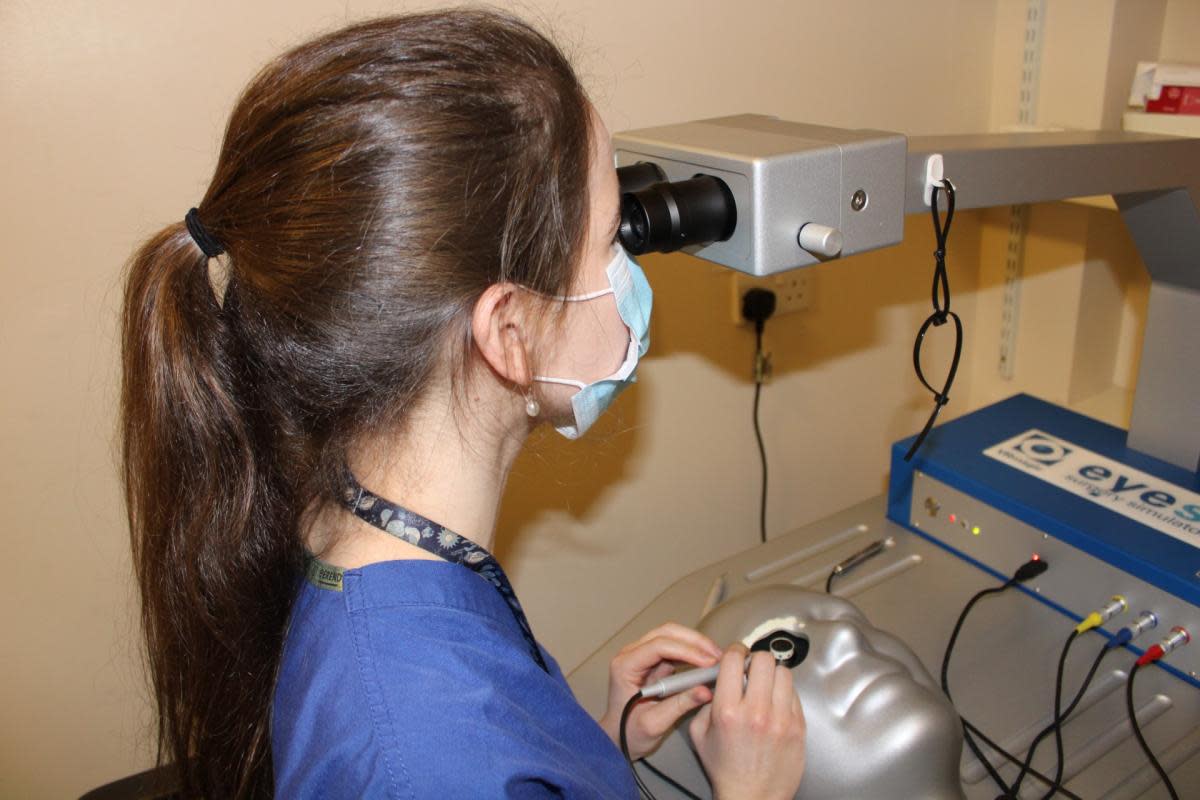Fundraising target reached for new eye simulator at Dorset hospital

A BRAND new state-of-the-art eye machine has been installed at Royal Bournemouth Hospital.
The eye simulator costs around £201,000 and was funded through various donations including Friends of the Bournemouth Eye Unit, who donated a staggering £49,986 towards the new simulator.
The Roger Raymond Charitable Trust also donated £20,000 as well as The Valentine Charitable Trust which donated £10,000 to the future of surgery and training at the hospital.
The Eye Sim will train the next generation of surgeons across Wessex at the Royal Bournemouth Hospital’s Eye Unit.
Trustee of Friends of the Eye Unit and head orthoptist and optometry service manager at University Hospitals Dorset, Julie Dowdney said: “Friends of Bournemouth Eye Unit were delighted to be able to contribute to this essential training equipment.
“This charity has worked extremely hard to support the Eye Unit and has contributed to many large equipment purchases, or entirely funded these from the funds raised.
“This will help future ophthalmologists learn in a safe, less pressured environment and enhance the skill set of future doctors.”
University Hospitals Dorset NHS Foundation Trust consultant ophthalmologist and ophthalmic surgeon, James Kersey, has seen firsthand the change in training for eye surgery over the last 20 years.
He said: "Originally, all training for cataract surgery was done with the consent of patients in stages, and it took some time for trainees to finally complete a whole cataract operation.
“The eye simulator has allowed our trainees here at the Royal Bournemouth Hospital Eye Unit to increase their training time allowing them to practice eye surgery outside of the theatre environment.
“This improved training environment has allowed us to upskill our trainees faster’ meaning that when they come to operate on patients for the first time, they already have an excellent grasp of the skills required and can concentrate on more complex elements of the surgery.”
“Because of the kind support from supporters in our local community, we are able to help take our hospitals into the future and give patients the best outlook possible."

 Yahoo News
Yahoo News 
